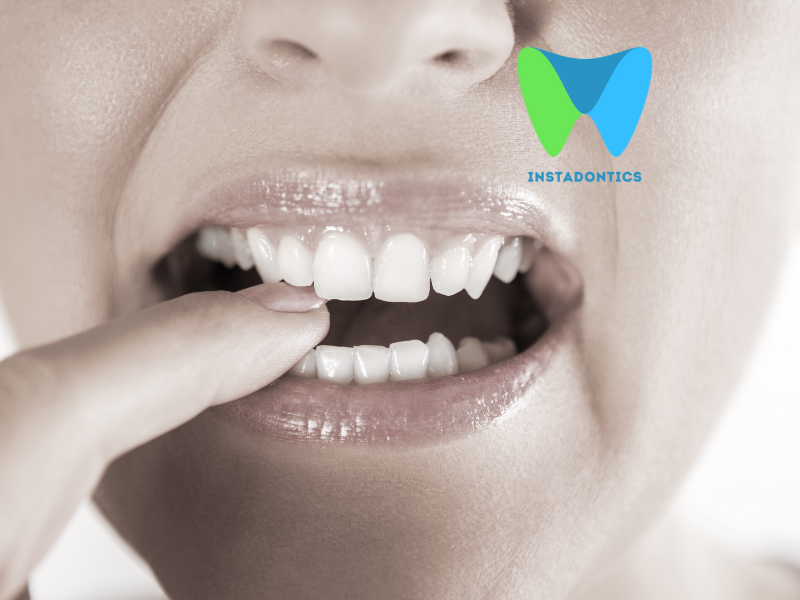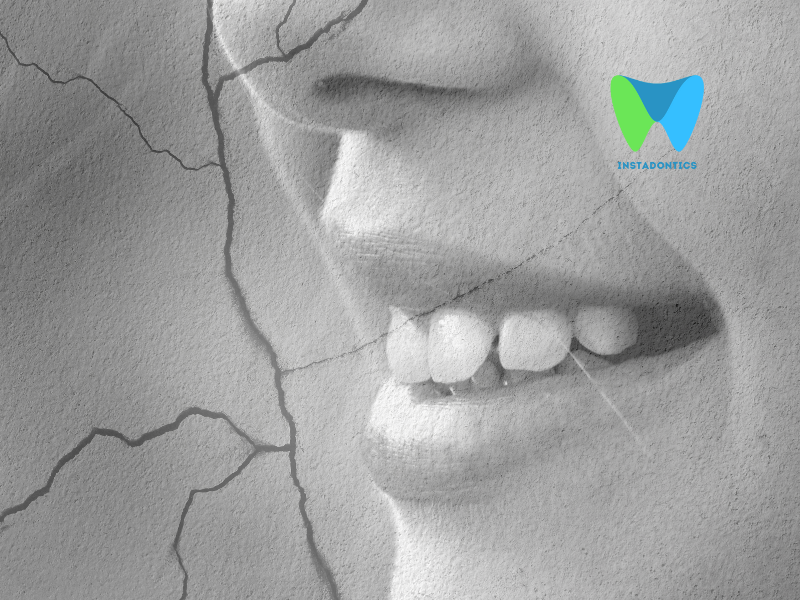Why are my teeth yellow when I brush them everyday? | Experiencing yellow teeth despite maintaining a regular brushing routine can be frustrating. While good oral hygiene is crucial for dental health, several factors can contribute to tooth discoloration.
So, Let’s take a deep dive into: Why Good Oral Hygiene Isn’t Always Enough ..
Many people diligently brush their teeth every day, yet still find themselves dealing with yellowing or discolored teeth. This can be frustrating, especially when you’re committed to maintaining good oral hygiene. While brushing is a crucial part of oral care, several factors can contribute to tooth discoloration. In this blog post, we will explore the various causes of yellow teeth, even with regular brushing, and discuss potential solutions to help restore your smile.
Why are my teeth yellow when I brush them everyday?
Intrinsic vs. Extrinsic Staining
To understand why your teeth may be yellowing, it’s essential to differentiate between intrinsic and extrinsic staining.
Intrinsic Staining
Intrinsic stains occur within the tooth structure, often making them more challenging to treat. These stains can result from various factors:
- Genetics: Some individuals have naturally darker or more yellowish dentin beneath their enamel. This genetic predisposition can make teeth appear yellower, regardless of oral hygiene practices.
- Aging: As we age, the enamel on our teeth naturally wears down. Thinner enamel allows more of the yellowish dentin to show through, resulting in a more pronounced yellow appearance.
- Medications: Certain medications can lead to intrinsic staining. For example, tetracycline antibiotics, particularly when taken during childhood, can cause discoloration. Additionally, some antihistamines and blood pressure medications may also contribute to yellowing teeth.
- Dental Fluorosis: Excessive fluoride exposure during childhood can lead to a condition called dental fluorosis, which is characterized by discoloration and mottling of the teeth.
Extrinsic Staining
Extrinsic stains occur on the surface of the teeth and are often more straightforward to address. Common causes include:
- Dietary Choices: Consuming staining foods and beverages is one of the most significant contributors to yellow teeth. Coffee, tea, red wine, cola, and dark berries can all lead to surface stains over time. Even certain sauces, like soy sauce or tomato sauce, can contribute to discoloration.
- Tobacco Use: Smoking or using other tobacco products can cause significant staining of the teeth. The nicotine and tar in tobacco can lead to yellow or brown discoloration, often making it difficult to achieve a bright smile.
Why are my teeth yellow when I brush them everyday?
The Role of Oral Hygiene
While brushing your teeth twice a day is essential for maintaining oral health, the effectiveness of your brushing technique and overall oral hygiene practices can significantly impact tooth color.
Poor Brushing Technique
Even if you brush daily, ineffective brushing can lead to plaque buildup and staining:
- Inadequate Brushing: If you’re not brushing for the recommended two minutes or not reaching all surfaces of your teeth, plaque can accumulate, leading to discoloration. Make sure to brush all areas of your mouth, including the back teeth and along the gumline.
- Using the Wrong Toothbrush: A hard-bristled toothbrush can wear down enamel over time, making teeth more susceptible to staining. It’s recommended to use a soft-bristled toothbrush for effective cleaning without damaging the enamel.
Neglecting Other Oral Hygiene Practices
Brushing is just one part of a comprehensive oral hygiene routine:
- Flossing: Failing to floss daily can allow plaque to build up between teeth, leading to decay and discoloration. Flossing helps remove food particles and plaque that brushing alone may not reach.
- Regular Dental Cleanings: Routine dental check-ups and cleanings are essential for removing tartar and stains that brushing may not eliminate. Your dentist can also provide professional whitening treatments if necessary.
Dietary Habits and Their Impact
Your overall diet can significantly influence the color of your teeth:
- High Sugar Intake: A diet high in sugar can lead to tooth decay, which may result in yellowing as the enamel erodes. Sugary foods and drinks can contribute to plaque buildup and acid production, leading to discoloration.
- Acidic Foods and Beverages: Frequent consumption of acidic foods and drinks can erode enamel, making the underlying dentin more visible. This can lead to a yellowish appearance, especially if combined with other risk factors like poor oral hygiene or teeth grinding.
Lifestyle Factors
Several lifestyle choices can also contribute to yellow teeth:
- Dehydration and Dry Mouth: Saliva plays a crucial role in maintaining oral health by neutralizing acids and washing away food particles. A lack of saliva (dry mouth) can lead to an increased risk of staining and discoloration. Dehydration or certain medications can contribute to dry mouth, making it essential to stay hydrated.
- Stress Management: Stress can lead to teeth grinding (bruxism), which may wear down enamel and contribute to discoloration. Incorporating stress management techniques into your routine can help protect your teeth.
Health Conditions and Their Effects
Certain health conditions can also affect the color of your teeth:
- Gastroesophageal Reflux Disease (GERD): This condition can cause stomach acid to reach the mouth, leading to enamel erosion and increased discoloration. If you experience frequent acid reflux, it’s essential to consult a healthcare professional for management options.
- Nutritional Deficiencies: Lack of essential nutrients, such as calcium and vitamin D, can weaken teeth and contribute to discoloration. A balanced diet is crucial for maintaining strong, healthy teeth.
When to Seek Professional Help
If you notice yellowing teeth despite maintaining a regular brushing routine, it may be time to consult a dentist. Here are some signs that indicate you should seek professional care:
- Visible Discoloration: If you notice any changes in the color of your teeth, even if they are minor, it’s best to have them evaluated.
- Increased Sensitivity: Heightened sensitivity to hot, cold, or sweet foods may indicate that the enamel is compromised or that there are underlying issues.
- Pain or Discomfort: Any pain or discomfort in your teeth should be addressed promptly, as it may indicate decay or damage.
- Changes in Bite: If you notice changes in how your teeth fit together or experience jaw pain, it’s important to consult your dentist.
Yellow teeth can be a source of frustration, especially when you’re committed to good oral hygiene. Understanding the various causes of tooth discoloration, including intrinsic and extrinsic stains, dietary habits, lifestyle factors, and underlying health conditions, is crucial for addressing the issue effectively.
FAQs
It’s common to feel frustrated when your teeth appear yellow despite regular brushing. Several factors can contribute to this discoloration, even with diligent oral hygiene. Here are some frequently asked questions and their answers:
1. Why are my teeth yellow even though I brush daily?
Yellowing can result from various factors beyond plaque buildup:
- Genetics: Some individuals naturally have thinner enamel, causing the yellowish dentin beneath to be more visible
- Aging: As we age, enamel wears down, making teeth appear more yellow. citeturn0search1
- Diet: Consuming staining foods and beverages like coffee, tea, red wine, and berries can discolor teeth over time.
- Smoking: Tobacco use leads to yellow and brown surface stains on teeth. citeturn0search0
- Medications: Certain antibiotics and other drugs can cause intrinsic stains, affecting the internal structure of the tooth.
2. Can brushing alone whiten my teeth?
While brushing is essential for oral health, it may not remove deeper stains or alter the natural color of your teeth. In such cases, professional whitening treatments or other cosmetic procedures might be more effective.
3. How can I prevent my teeth from yellowing?
To maintain a brighter smile:
- Practice Good Oral Hygiene: Brush at least twice daily, floss regularly, and consider using whitening toothpaste.
- Limit Staining Foods and Drinks: Reduce consumption of items known to stain teeth, and rinse your mouth with water after consuming them.
- Avoid Tobacco Products: Quitting smoking or chewing tobacco can prevent further discoloration.
- Regular Dental Visits: Schedule professional cleanings and check-ups to address any underlying issues.
4. Are yellow teeth permanent?
Not necessarily. Depending on the cause, professional treatments and lifestyle changes can often restore whiteness.
5. What professional treatments are available for yellow teeth?
Dentists offer various solutions, including:
- Professional Teeth Whitening: In-office procedures that lighten teeth several shades.
- Veneers: Thin coverings placed over the front of the teeth to improve appearance.
- Bonding: Applying a tooth-colored resin to correct discoloration.
If you’re concerned about the color of your teeth, don’t hesitate to reach out to your dentist for guidance and support. They can help identify the underlying causes of discoloration and recommend appropriate treatment options, such as professional whitening, fluoride treatments, or dietary adjustments. Remember, maintaining good oral hygiene is essential, but understanding the various factors that contribute to tooth color can help you achieve a brighter, healthier smile.



